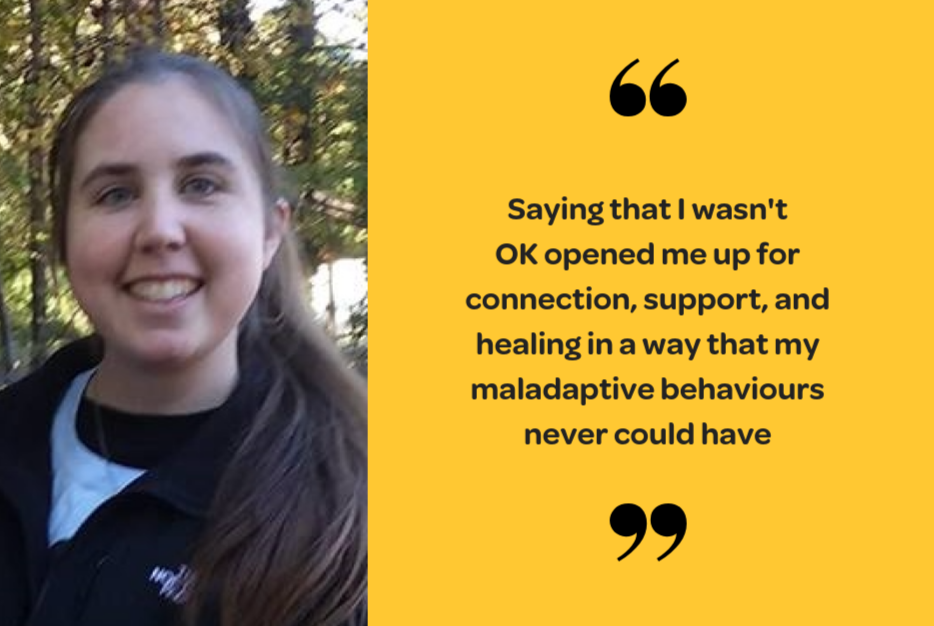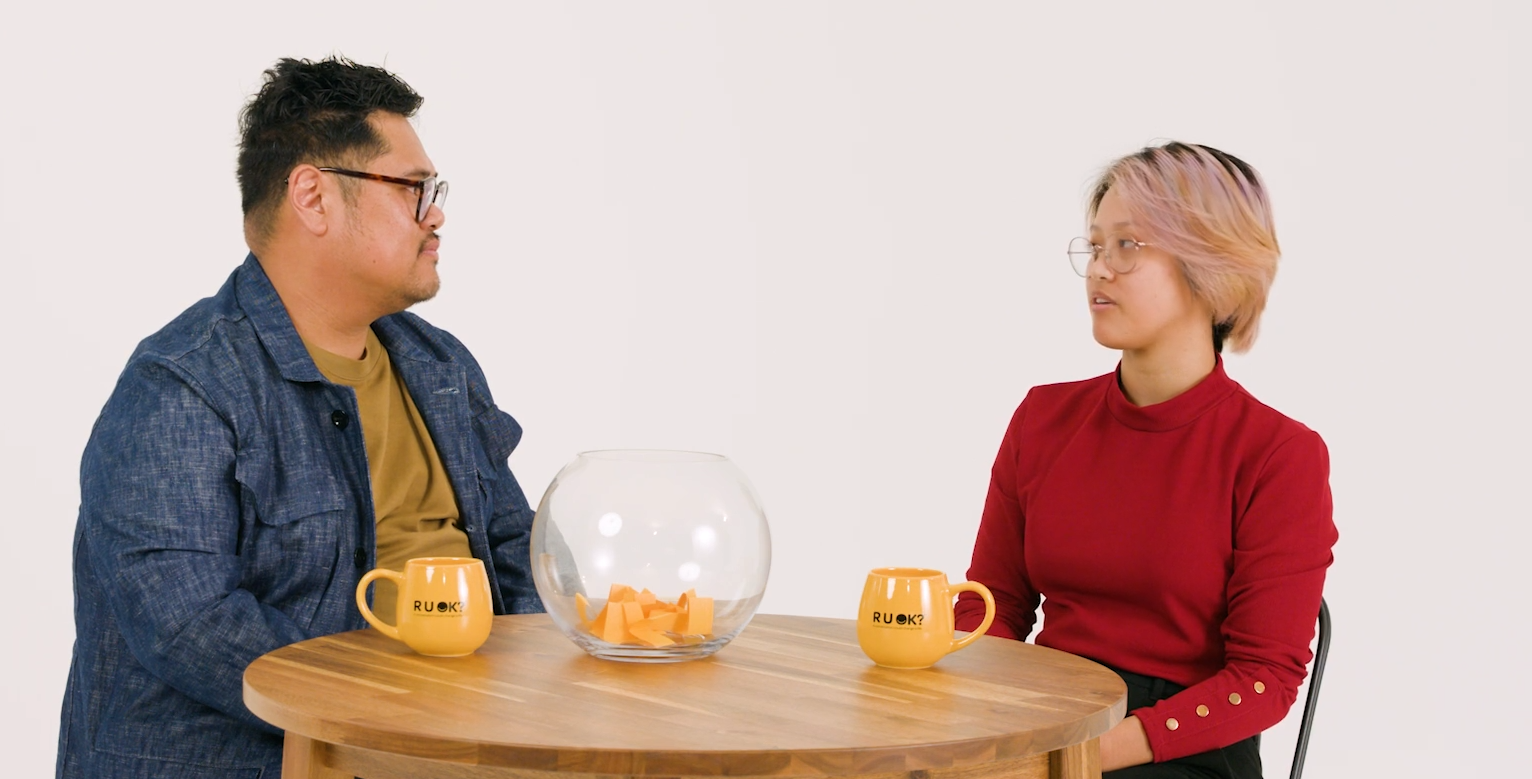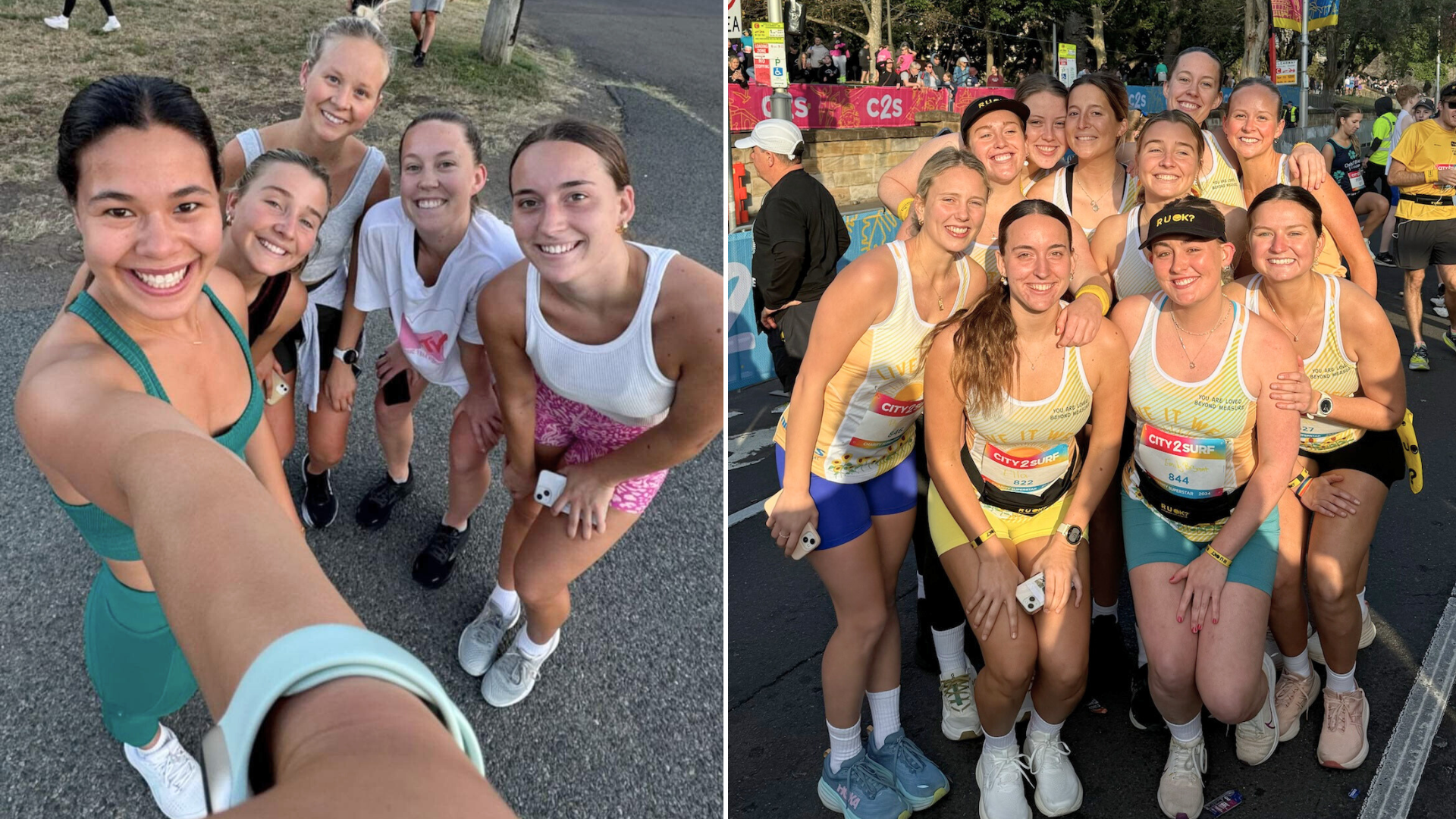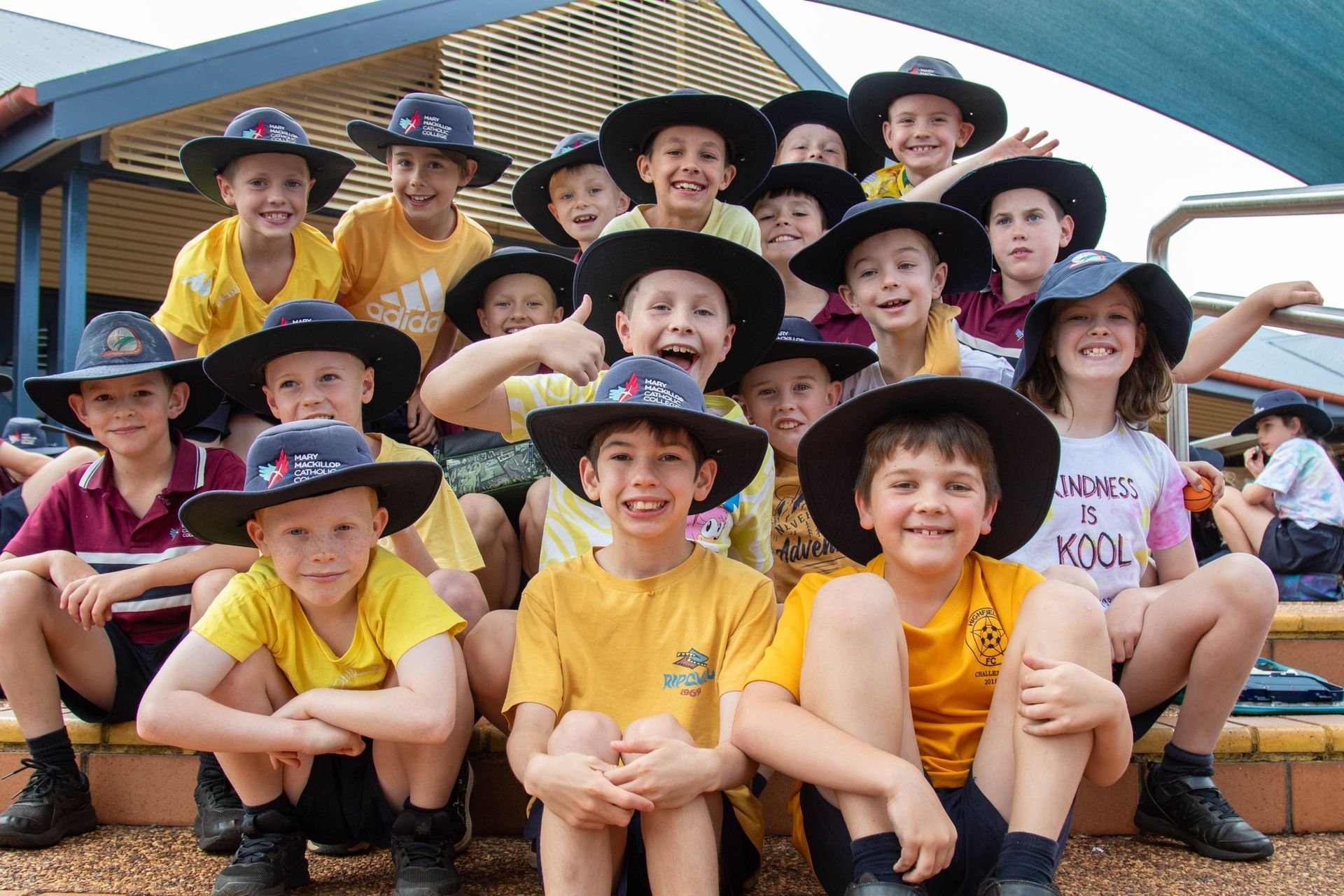We are all humans, here on this earth to connect with and provide support to one another
R U OK? supporter Emily Dillow shares her story and the importance using your words to articulate how you're feeling.
Avoiding social situations is not the most effective way to express that you are not ok.
Likewise, acting on eating disorder behaviors is not the best way to get the point across that you are not ok. I am grateful that through the process of treatment for social anxiety and an eating disorder, I learned to use my words to clearly articulate, “I am not ok.” Saying those words opened me up for connection, support, and healing in a way that my maladaptive behaviors never could have.
Along with learning in treatment to say, “I am not ok,” I also got used to hearing fellow group members say, “I am not ok.” By being with and relating to people during their difficult times, I learned that we are all more alike than I ever thought before.
We are all humans, here on this earth to connect with and provide support to one another.
If you or a loved one need support for eating disorder or body image issues, contact the Butterfly Foundation helpline on 1800 33 4673 (8am-midnight)
Worried about someone? Find tips to help you ask R U OK? here.
Sign up to our newsletter for conversations tips, news and insights from our staff, experts and supporters.
Nature's Symphony
R U OK? is an Australian suicide prevention charity and registered public health promotion that encourages people to stay connected and have conversations that can help others through difficult times.
R U OK? acknowledges Aboriginal and/or Torres Strait Islander peoples and communities as the traditional custodians of the land on which we live and work and pay our respects to elders past, present and emerging. We are an inclusive organisation and respect people of all backgrounds, genders, sexualities, cultures, bodies and abilities.
Nature's Symphony
R U OK? is an Australian suicide prevention charity and registered public health promotion that encourages people to stay connected and have conversations that can help others through difficult times.
R U OK? acknowledges Aboriginal and/or Torres Strait Islander peoples and communities as the traditional custodians of the land on which we live and work and pay our respects to elders past, present and emerging. We are an inclusive organisation and respect people of all backgrounds, genders, sexualities, cultures, bodies and abilities.
Nature's Symphony
R U OK? is an Australian suicide prevention charity and registered public health promotion that encourages people to stay connected and have conversations that can help others through difficult times.
R U OK? acknowledges Aboriginal and/or Torres Strait Islander peoples and communities as the traditional custodians of the land on which we live and work and pay our respects to elders past, present and emerging. We are an inclusive organisation and respect people of all backgrounds, genders, sexualities, cultures, bodies and abilities.






















